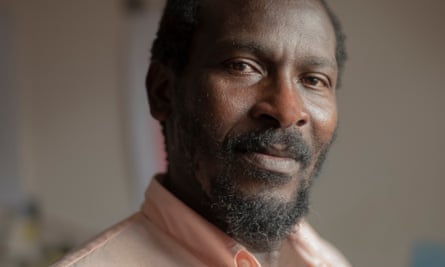Two victims of the Windrush scandal have launched legal proceedings against the Home Office over protracted delays in issuing compensation, asking for clarity on how claims can be expedited.
Both Henry Vaughan, 67, and Fitzroy Maynard, 55, are struggling financially while living in unsuitable bedsit accommodation. They say they are unable to begin rebuilding their lives after years of problems caused by the government’s mistaken decision to classify them as illegal immigrants.
Vaughan, who arrived in 1961 as a seven-year-old from Jamaica to join his mother who was working in a London hospital, had decades of difficulties proving that he was in the UK legally, and the cumulative stress has triggered serious health problems.
Maynard came to the UK as a 14-year-old from Antigua in 1980. He was homeless for several years, living on the streets after losing his job as a residential caretaker, and found it impossible to get new work because he was unable to persuade employers that he had the right to live and work in the UK.
Both were given documentation by the Windrush taskforce, after the government apologised in 2018 for erroneously classifying thousands of legal residents as illegal immigrants, but both have experienced long delays after applying for compensation. Vaughan applied 10 months ago, Maynard 18 months ago.
The judicial review, launched by the London law firm Leigh Day on the men’s behalf, is calling on the Home Office to publish guidance on its expedition process for claims under the Windrush compensation scheme.

Legal proceedings state that the average waiting time for an applicant to receive a final payment is 434 days, despite many applicants being in desperate need of financial compensation.
The legal team discovered that there is an internal system under which urgent cases can be expedited, but there is no public information about how to apply for claims to be fast-tracked. The lawyers argue that the system of prioritisation needs to be made clear so that those in acute need, such as elderly and disabled people, can apply for expedition.
Maynard is hoping that compensation might help him to move out of the single-room bedsit that he shares with his six-year-old daughter. The property has had a rat infestation, and the other occupants of the building are vulnerable single men.
“There is nowhere for her to play. It is far from ideal,” he said. “The compensation process is so stressful – it makes you think that they are hoping people will go away and decide not to bother.”
Vaughan would like to be able to use the compensation money to help his children. “I’ve been waiting almost two years. It does feel like maybe they are waiting for me to die. We’re old, we don’t have 20 or 30 years ahead of us,” he said.
The Windrush compensation scheme has been beset by controversy since its launch two and a half years ago. Applicants have voiced unease that their claims are being decided by the same Home Office staff who were responsible for hostile environment policies that caused many of their original difficulties.
The most senior black Home Office employee in the team responsible for the Windrush compensation scheme resigned last year, describing the scheme as systemically racist and unfit for purpose. At least 21 people are known to have died before receiving the compensation they applied for. Labour has called for the scheme to be removed from the Home Office and administered by an independent body.
Improvements to the scheme have been made, and a Home Office spokesperson said more than 13,800 people have received documentation confirming their immigration status or British citizenship through the Windrush scheme, and the government has paid out more than £29m across 889 claims.

But there is still concern about the low takeup of a scheme that was initially expected to assist more than 10,000 people and pay out at least £200m. The head of the scheme, Tom Greig, was seconded in August to work on the Afghan resettlement programme, prompting fears that the scheme has been deprioritised.
A Home Office spokesperson said: “The home secretary has been resolute in her determination to put right the wrongs suffered by all those affected by the Windrush scandal. In July, she made further improvements to simplify the application process, announced new support measures for those claiming on behalf of relatives who have passed away, and removed the scheme’s end date – all designed to ensure every victim receives the compensation they deserve as quickly as possible.”
John Crowley, a solicitor from Leigh Day, said: “Without knowing that expedition is an option, it is impossible to make an effective application. Applicants to the Windrush compensation scheme have suffered constant delays and in our experience, unless there is a clear policy on when an application should be expedited, caseworkers tend to put new applications to the bottom of the pile, even for those in the most urgent need, like our clients bringing this challenge.”
